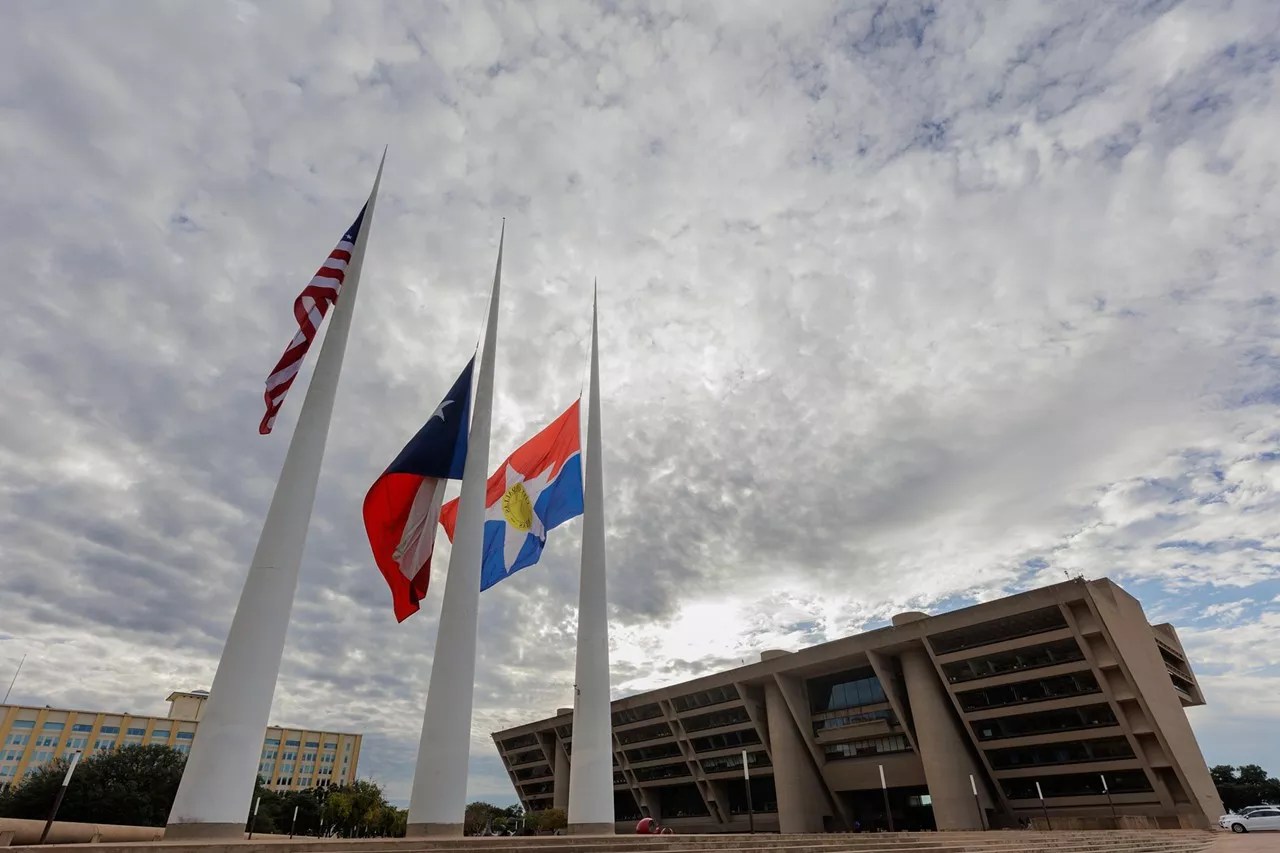
Nathan Hunsinger

Audio By Carbonatix
“I really didn’t think this had a chance,” said Catina Voellinger. She’s an organizer with Ground Game Texas, and while her recent advocacy was focused on the passage of Prop R (which decriminalized marijuana in Dallas), Voellinger was also keeping an eye on the three controversial proposed amendments to the Dallas city charter.
On Nov. 5, two of those three passed.
Now, any resident can sue the city for violating the charter. Additionally, the police and fire pension will receive at least 50% of the city’s new annual revenue above the prior year’s amount. After the city cuts that check, any part of that remaining 50% would be used to increase the starting pay for police officers.
Lastly, the total minimum number of officers is now 4,000 (an increase of about 900 cops).
The third proposition, which failed, would have subjected the city manager to an annual survey that could have cost them their job.
The monthslong fight over these propositions pitted two main groups:
Dallas HERO, the group that conceived the propositions and garnered the signatures needed to get them on the ballot, and a coalition of former civic and business leaders, including former mayors like Mike Rawlings and Laura Miller.
Philip Kingston, an attorney and former council member, says the anti-HERO efforts may have started too late. (For example, opponents’ major “vote no” efforts kicked off a little over a month ago.)
“But Mike [Rawlings] is such a good fundraiser,” Kingston adds, “that I thought they’d raised enough money to really do something.”
From the start, HERO was known for its affiliation with the far right. The effort is bankrolled by Republican mega-donor Monty Bennett, and its public face is conservative activist Pete Marocco. Bennett and Marocco were both reportedly present at the Capitol riot on Jan. 6, and prior to his HERO affiliation, Marocco was perhaps best known for “undermining” and “mistreating” staffers at USAID, as reported by Politico.
A representative for Marocco did not respond to a request for comment about the Jan. 6 insurrection, but before the Nov. 5 vote, he answered a series of questions about common criticisms of HERO. For instance, some voters took issue with the fact that Marocco was lobbying for these charter changes without living in Dallas. He resides in University Park, and he previously told the Observer, “We looked at other parts of Dallas and just didn’t feel safe.”
Jeff Patterson, the leader of the city’s firefighters association, is one of those Marocco critics. In multiple interviews with the Observer, the veteran firefighter stressed that he never found HERO’s efforts trustworthy, and he took special issue with the organization’s now-successful efforts to alter the pension fund.
“We feel it could create a division in Public Safety,” he said shortly before the vote. “It has the potential to disrupt our Meet & Confer. That is what we use to negotiate our pay and keep us competitive with surrounding police and fire departments. We negotiate our salaries through Meet & Confer, not through city charter.”
Despite these misgivings, Patterson says his association did not join efforts with the coalition led by former mayors.
“We have too many members that are still angry with Rawlings and his handling of the pension back in 2017,” he said.
Voellinger says the lack of cohesion between HERO’s various critics could have played a role in its success.
“Organizing has to be interwoven in a community,” she said. “It can’t just be propelled from the dais. You can make a lot of show, but it falls short when you’re not organizing alongside your community.”
In the early hours of Nov. 6, the Rawlings-led group released a statement that claims the HERO propositions were “false promises.” But the somber statement also says, “these Charter election results should be a wakeup call for everyone who cares about local government.”
It reads like the group may be willing to turn the page, but Kingston says the fight is far from over. Over the phone, he outlined several ways the city could combat the propositions:
“If a court were to try to force the hire of 900 more officers and keep staffing levels no matter what, the city could probably take advantage of Chapter 9 of the bankruptcy code,” he said. “If the city declares bankruptcy, I don’t think the charter has any effect.”
Further, Kingston argues that Dallas could file a declarative action that says it is unconstitutional for a city to waive its sovereign immunity (which it is now compelled to do as part of HERO’s lawsuit-related proposition).
“There is no future universe in Dallas where there is no litigation,” he says, “and my point is, it’s always better to be the plaintiff.”